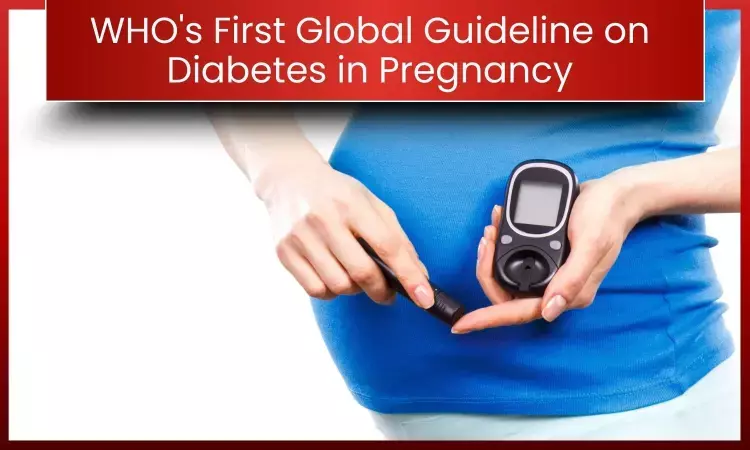- Home
- Medical news & Guidelines
- Anesthesiology
- Cardiology and CTVS
- Critical Care
- Dentistry
- Dermatology
- Diabetes and Endocrinology
- ENT
- Gastroenterology
- Medicine
- Nephrology
- Neurology
- Obstretics-Gynaecology
- Oncology
- Ophthalmology
- Orthopaedics
- Pediatrics-Neonatology
- Psychiatry
- Pulmonology
- Radiology
- Surgery
- Urology
- Laboratory Medicine
- Diet
- Nursing
- Paramedical
- Physiotherapy
- Health news
- Fact Check
- Bone Health Fact Check
- Brain Health Fact Check
- Cancer Related Fact Check
- Child Care Fact Check
- Dental and oral health fact check
- Diabetes and metabolic health fact check
- Diet and Nutrition Fact Check
- Eye and ENT Care Fact Check
- Fitness fact check
- Gut health fact check
- Heart health fact check
- Kidney health fact check
- Medical education fact check
- Men's health fact check
- Respiratory fact check
- Skin and hair care fact check
- Vaccine and Immunization fact check
- Women's health fact check
- AYUSH
- State News
- Andaman and Nicobar Islands
- Andhra Pradesh
- Arunachal Pradesh
- Assam
- Bihar
- Chandigarh
- Chattisgarh
- Dadra and Nagar Haveli
- Daman and Diu
- Delhi
- Goa
- Gujarat
- Haryana
- Himachal Pradesh
- Jammu & Kashmir
- Jharkhand
- Karnataka
- Kerala
- Ladakh
- Lakshadweep
- Madhya Pradesh
- Maharashtra
- Manipur
- Meghalaya
- Mizoram
- Nagaland
- Odisha
- Puducherry
- Punjab
- Rajasthan
- Sikkim
- Tamil Nadu
- Telangana
- Tripura
- Uttar Pradesh
- Uttrakhand
- West Bengal
- Medical Education
- Industry
WHO Issues First Global Guideline on Diabetes in Pregnancy on World Diabetes Day 2025: Key Takeaways

The World Health Organization (WHO) has issued its first global guideline for diabetes in pregnancy on World Diabetes Day (November 14, 2025), and the guideline recommends the use of metformin in women with type 2 diabetes and those with gestational diabetes mellitus (GDM). It further details individualised lifestyle advice, use of insulin, blood glucose targets, consistent clinic-based and home-based monitoring, structured medication pathways across all diabetes types, and multidisciplinary support for women with pre-existing diabetes. [1]
Core Recommendations
For pregnant women with type 2 diabetes, the guideline recommends (Figure 1):
Figure 1: Core Recommendations for Pregnant women with T2D
For women with gestational diabetes mellitus (GDM), the guideline recommends (Figure 2):
Figure 2: Core Recommendations for Pregnant women with GDM
India Context
With type 2 diabetes (T2D) affecting 588 million people globally and nearly 90 million in India, and with CVD occurring earlier and with greater mortality among Indian individuals with diabetes, the need for standardised care is urgent. [2] Young-onset T2D further adds to the complexity. Meanwhile, diabetes during pregnancy affects about one in six pregnancies, around 21 million women annually, presenting the importance of clear clinical guidance. [1]
Dr. Soumik Goswami (MD DM [Endocrinology], FICP; Assistant Professor, Dept. of Endocrinology, NRS Medical College & Hospital, Kolkata) noted that the WHO guideline provides timely, evidence-based direction for managing diabetes in pregnancy, especially as the prevalence of type 2 diabetes and young-onset diabetes continues to rise. He emphasised that the structured use of lifestyle measures, regular glucose monitoring, and clear initiation pathways for insulin and metformin will help clinicians achieve safer glyacemic control for both mother and baby. He added that incorporating these recommendations into routine antenatal care can support more consistent, standardised practice across diverse healthcare settings relevant in India.
Dr. Hardik Chauhan (MS Gynaecology; Lotus Women’s Hospital, Ahmedabad) also highlighted that diabetes during pregnancy remains a major public health concern, particularly in India, where type 2 diabetes is highly prevalent. In Indian pregnant women, the prevalence of GDM is 13% [3], and the conversion rate from GDM to T2DM is 29.9% [4]. Dr. Chauhan noted that the WHO guideline will help policymakers, obstetricians, endocrinologists, and primary-care teams align on standardized care pathways, improve health-worker training, and ensure equitable access to essential medicines and monitoring tools. According to him, implementing these recommendations can help reduce preventable complications and strengthen a more woman-centered approach to maternal health.
The new WHO guideline offers standardized, evidence-based recommendations to improve the management of diabetes during pregnancy and reduce associated maternal and neonatal risks.
- 1.World Health Organisation WHO recommendations on care for women with diabetes during pregnancy 2025/11/14 -
- 2.International Diabetes Federation. IDF Diabetes Atlas (11th ed.) 2025/08/28 -
- 3.Mantri, N., Goel, A. D., Patel, M., Baskaran, P., Dutta, G., Gupta, M. K., Yadav, V., Mittal, M., Shekhar, S., & Bhardwaj, P. National and regional prevalence of gestational diabetes mellitus in India: a systematic review and Meta-analysis BMC public health2024/02/20 24 527-
- 4.Shivashri, C., Hannah, W., Deepa, M., Ghebremichael-Weldeselassie, Y., Anjana, R. M., Uma, R., Mohan, V., & Saravanan, P. Prevalence of prediabetes and type 2 diabetes mellitus in south and southeast Asian women with history of gestational diabetes mellitus: Systematic review and meta-analysis. PloS one2022/12/12 17 e0278919-
Dr Kamal Kant Kohli-MBBS, DTCD- a chest specialist with more than 30 years of practice and a flair for writing clinical articles, Dr Kamal Kant Kohli joined Medical Dialogues as a Chief Editor of Medical News. Besides writing articles, as an editor, he proofreads and verifies all the medical content published on Medical Dialogues including those coming from journals, studies,medical conferences,guidelines etc. Email: drkohli@medicaldialogues.in. Contact no. 011-43720751


